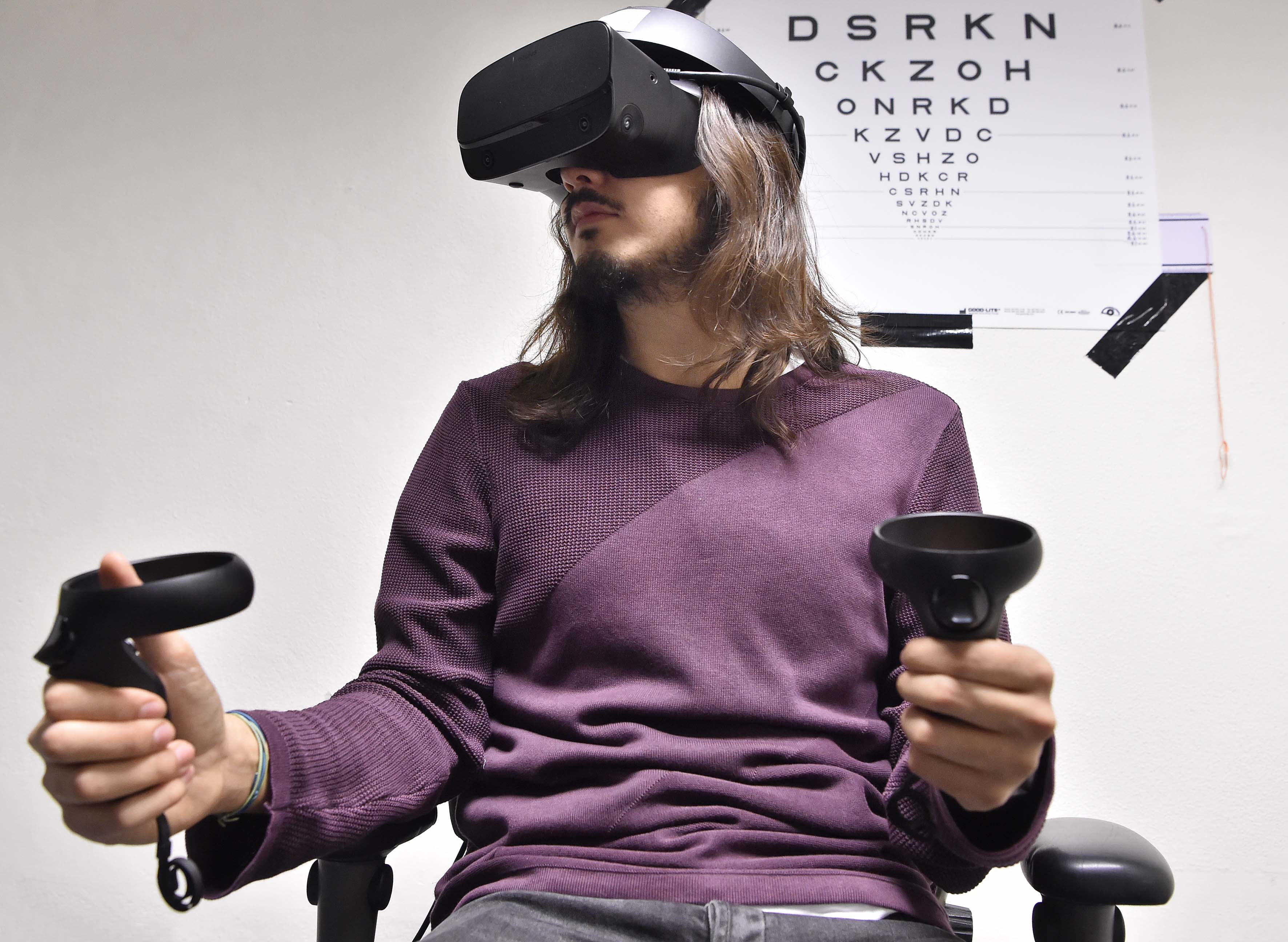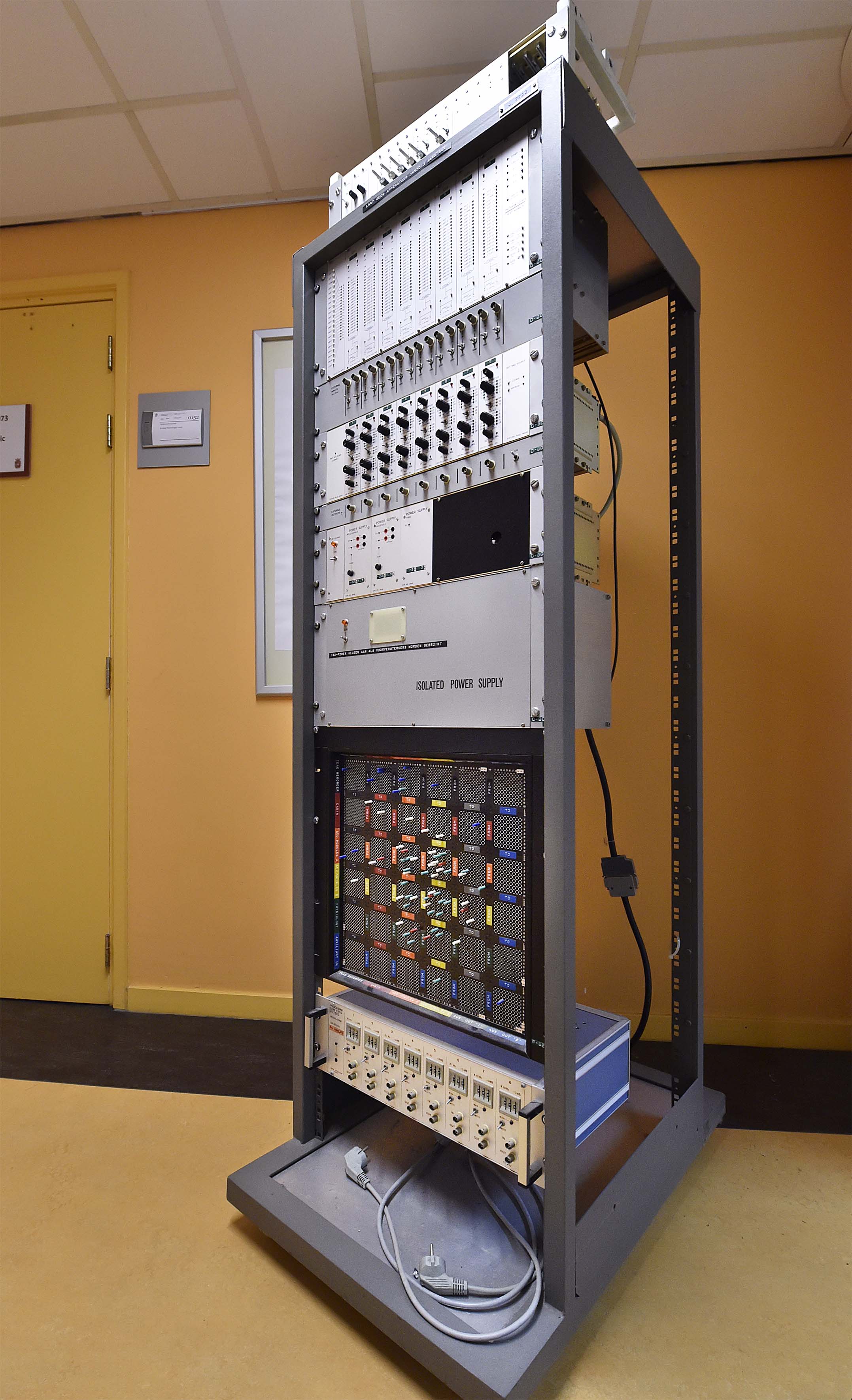Photo report: Hacking brains in Psychology
Hallways, a basement and closed doors behind which small rooms hide, each with their own purpose – the laboratory areas in the department of Psychology are easy to see as a basic illustration of our brains. And just like in our brains, in the department of Psychology, more is happening than meets the eye. Everyone knows about the EEG caps full of electrodes to measure brain activity. But over the course of the years, psychologists have developed all sorts of laboratory areas to conduct research into the various functions of our brains. These new areas owe much to the renowned Groningen professor Gerardus Heymans, who put experimental psychology in the Netherlands on the map a century ago.
The experiments and simulations are sometimes deceptive, however. This is evident from the story of the test subject who had to make a call from the driving simulator to test the impact of telephone use on driving behaviour. After the call, she threw her phone on the passenger seat – or so she thought. Because the seat wasn’t actually there, of course...
(Photos: Elmer Spaargaren. Many thanks to Mark Span, DataLab Psychology, for his contribution.)








| Last modified: | 20 June 2024 07.56 a.m. |
More news
-
30 June 2025
Science for Society | The right job for asylum seekers with a residence permit
Many asylum seekers with a residence permit (known in Dutch as status holders) are eager to work in an environment that recognizes and values their skills. Cultural differences and expectations play a major role for both the newcomer with a residence...
-
17 June 2025
The brain as tumble tower
For decades, Monicque Lorist, Professor of Cognitive Neuropsychology, has been trying to unravel how the human brain works. What influences our thinking? What happens when we are tired, or when we age? ‘There‘s still so much we don’t know. Questions...
-
16 June 2025
Science for Society | Wild & Willful
Quite a few children display energetic and headstrong behaviour that does not fit in with the demands our society places on them. Parents, teachers, and pedagogical staff are therefore looking for tools to deal with this behaviour without...
